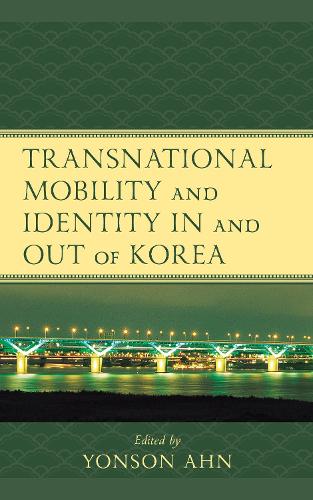
Transnational Mobility and Identity in and out of Korea
(Hardback)
Available Formats
Publishing Details
Transnational Mobility and Identity in and out of Korea
By (Author) Yonson Ahn
Contributions by Yonson Ahn
Contributions by Youna Kim
Contributions by Jieun Lee
Contributions by Seonok Lee
Contributions by Dukin Lim
Contributions by Stephen Cho Suh
Contributions by Ruixin Wei
Contributions by Changzoo Song
Contributions by Wayne Patterson
Bloomsbury Publishing PLC
Lexington Books
29th November 2019
United States
Classifications
Professional and Scholarly
Non Fiction
305.8957
Physical Properties
Hardback
236
Width 162mm, Height 233mm, Spine 24mm
535g
Description
This volume examines the socio-cultural aspects of transnational mobility of the Korean diaspora across the globe, spanning countries such as Japan, the Philippines, Germany, the US, and the UK. The contributors explore gendered migration, social inclusion and exclusion in homeland and hostland, embodied multiple subjectivities and belonging in historical and contemporary contexts, migrants work and family, ethnic media consumption, information and communication technology (ICT) in transnational mobility, ethnic return migration, and marriage migration. This work is a strong interdisciplinary and trans-regional study, combining various disciplines such as sociology, gender studies, anthropology, history, theater studies, media and communication studies, and Asian studies.
Reviews
A new era of migration produces new features of immigrant lives. These features are well analyzed in this collection, which also examines enduring topics with fresh perspectives, such as the gendered dimensions of migration, return migrants, and newly dug up topics from the past, all in this innovative collection. This welcome addition is a fascinating compression of time and space with reference to transnational mobility of Korean migrants in and out of Korea. The authors analyze data from interviews, historical documents, theater work, and media. The collection explores why people move in and out of borders, what the priorities are to them, how they go about in search of identities, and seeking work, education, asylum, touring, and health services. Interactions between immigrants, returnees and locals are richly described.--Gil Soo Han, Monash University
This is the only book I know that examines such a diverse range of mobilities to and from South Korea in both historical and contemporary contexts. Most of the chapters are theoretically sophisticated with substantial ethnographic detail and should interest not only Korean Studies specialists, but scholars studying migration, diasporas, and race and ethnicity more broadly. I especially appreciated the emphasis on professional and marriage migration, and the return migration of adoptees and diasporic descendants to the ethnic homeland.--Takeyuki Tsuda, Arizona State University
Author Bio
Yonson Ahn is professor and chair of Korean studies at the Goethe University of Frankfurt.
